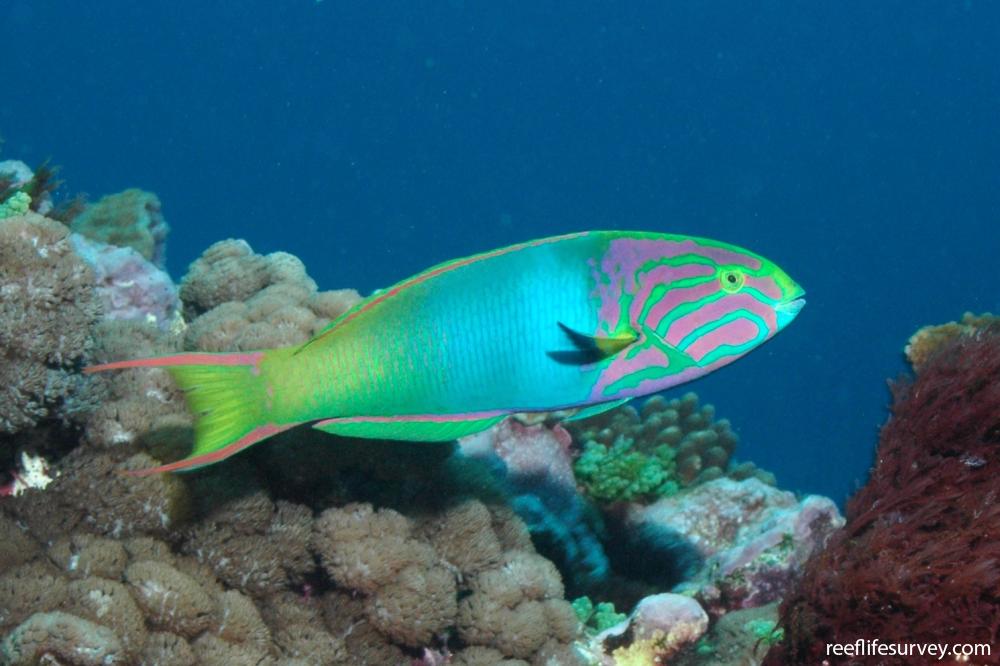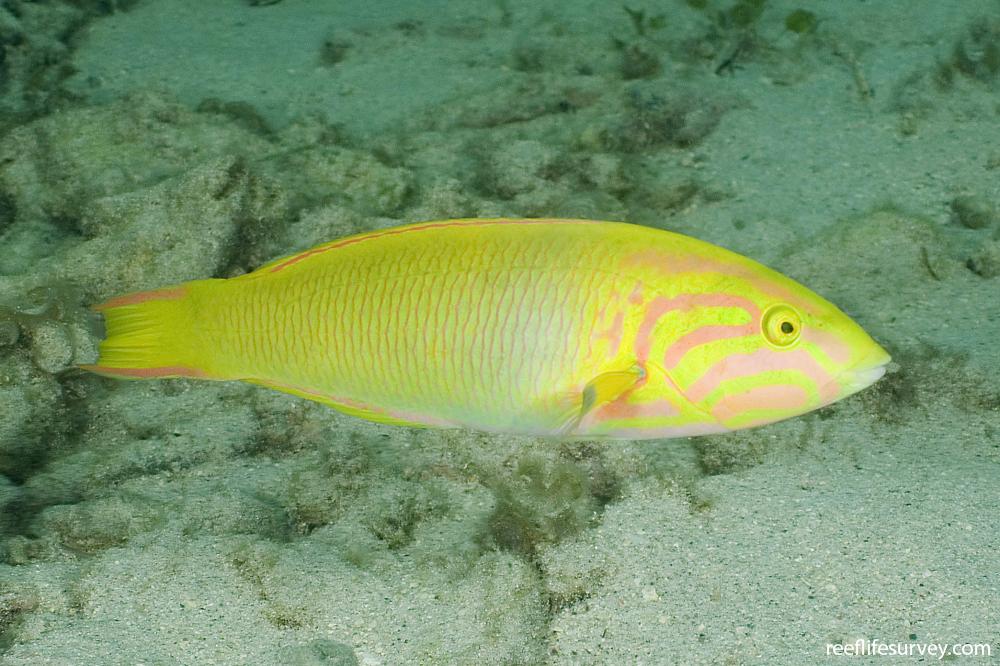Thalassoma lutescens
Green moon wrasse | Blue-fin Wrasse | Lime Green Wrasse | Sunset Wrasse | Whistling Daughter | Yellow Moon Wrasse | Yellow Wrasse | Yellow-brown Wrasse | Yellow-green WrasseSimilar Species
Same Genus
Distribution
Tropical Indo-Pacific
Description
Adults distinguished from T. lunare (moon wrasse) by yellow pectoral fin with purple outer margin. Juveniles often with black and white stripes, differing from juvenile Gomphosus varius (birdnose wrasse) by lack of 2nd black stripe below white; also shorter snout. Females similar to Halichoeres chrysus but have darker top and bottom of tail and lack ocelli on dorsal fin.
Information
Max Size: 30 cm
Sea Temperature Range: 18.5-29.6°C
Depth: 1-30 m
Habitat Generalization Index: 33.5
Also referred to as the SGI (Species Generalisation Index), this describes the habitat niche breadth of the species. Species with values less than 15 are found in a relatively narrow range of reef habitat types (specialists), while those over 25 may be found on most hard substrates within their range (generalists). Learn more here.
Conservation and Rarity
IUCN Status: Least Concern
Occurrence: Common (39.2% of sites)
Occurrence describes how often the species is found on surveys within its distribution. It is calculated as the % of reef sites surveyed by RLS divers across all the ecoregions in which the species has been observed
Abundance: Several (9 per transect)
Abundance is calculated as the average number of individuals recorded per RLS transect, where present.
Edit by: RD Stuart-Smith, GJ Edgar, AJ Green, IV Shaw. 2015. Tropical Marine Fishes of Australia. Reed New Holland

































